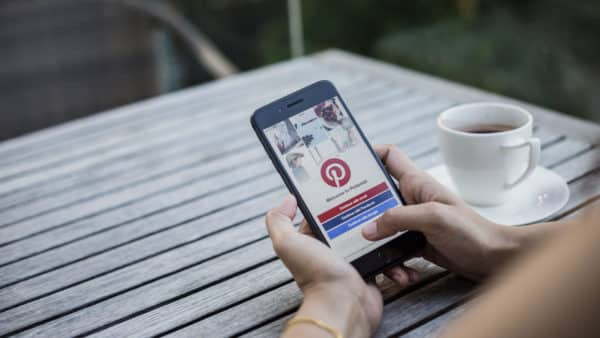The feature was released in 2021 and has 450 million users
Despite a 6% drop in monthly active users (MAUs) in the fourth quarter of last year, the social platform has regained growth, with a 4% increase in MAUs to 450 million and significant growth in mobile app users in the fourth quarter of 2022.
What Pinterest says. As part of its formal strategy, Pinterest aims to increase engagement and enhance advertiser outcomes through shoppability, along with enhancing monetization per user and streamlining operations. According to surveys, over half of Pinterest’s users consider the platform as a shopping destination, however, the company has not been efficient in making the shopping experience seamless, as acknowledged by the CEO.
“We’re building an experience that resonates with this audience, specifically around video. In fact, nearly half of all new videos pinned in Q4 were from Gen Z users.”
“Over the long term, we also want to make every pin shoppable. To that end, we’re making video content on Pinterest more actionable using the same playbook we applied to static images. Over the course of this year, we will be deploying our computer-vision technology across our video corpus to find products and videos and make them shoppable.”
Pinterest CEO Bill Ready
Future initiatives. Pinterest has initiated a project to improve the shopping experience by sending users directly to the product page on the merchant’s app and utilizing its mobile deep-linking format (MDL) for shopping advertisements. During the Black Friday Cyber Monday period, MDL generated 40% of the revenue from Pinterest’s shopping ads and contributed to a 50% growth in Q4.
The platform is also integrating shopping across its most-trafficked surfaces, including the home feed, search and related pins, to show users products most relevant to them.
Short form video content. Regarding monetization, Pinterest has seen over 10% of its engagement come from video content, with over 30% of its revenue being generated through short-form videos. The platform recently started letting advertisers create their own ads with the Idea Pin format, added support for video assets in product catalogs, and partnered with music labels to allow the use of licensed music in short videos.
Driving ad revenue. Pinterest ad revenue is now driven in roughly equal parts by campaigns driven by brand-oriented, consideration and conversion KPIs. The platform has “seen advertisers who take a full-funnel approach see more success than those who are only active on one campaign objective,” with advertisers that used a multi-objective media strategy seeing up to a 50% improvement in sales lift compared to those focused on one objective, Ready said.
Pinterest is also looking to help advertisers enhance relevance and personalization, Ready said, noting as an example its Q4 launch of ad-load management with whole-page optimization.
That enables flexing ad-load “opportunistically, in context, where ads are most well-suited for the user,” Ready said. “In our initial testing, this drove double-digit improvements in ad relevance on search, while simultaneously reducing CPAs for advertisers. We expect the whole-page optimization will enable us to continue to improve the efficiency with which we monetize our platform over time.”
Why we care. Adopting a full-funnel approach and utilizing a multi-objective media strategy, brands are likely to see better results and improvements in sales compared to those who focus on only one campaign objective.
On Pinterest, this has been shown to result in up to a 50% increase in sales lift. Additionally, the platform’s ad revenue is generated roughly equally by campaigns driven by brand-oriented, consideration and conversion KPIs, making it a valuable platform for advertisers looking to reach a wide range of objectives.
As platforms like Instagram and Facebook move away from shopping, Pinterest can step in as an alternative, giving advertisers an additional channel to showcase their products.



